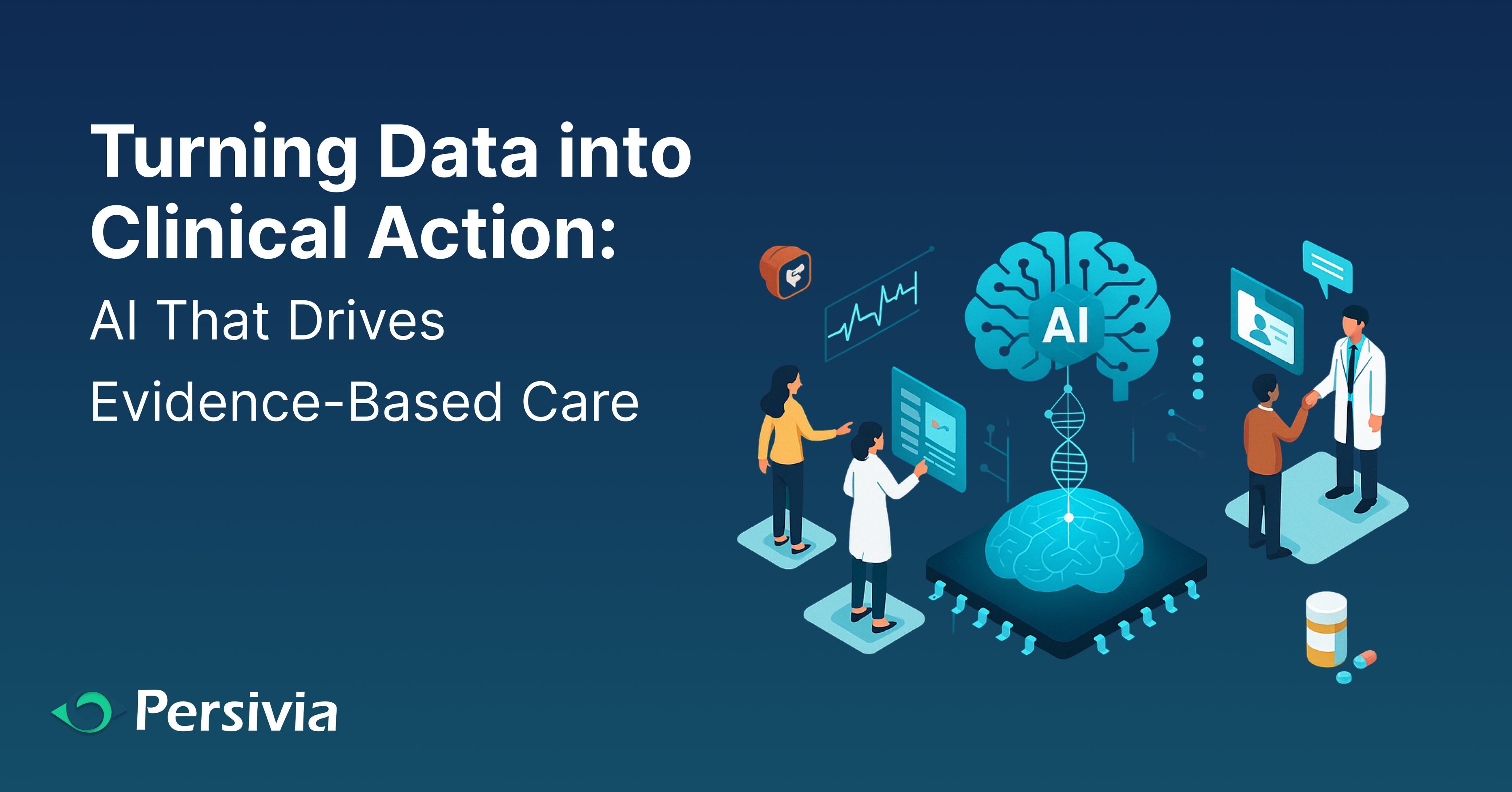In a world flooded with healthcare data, why is clinical action still delayed? According to Gartner’s latest report on What CIOs Need to Know About Health Data Management Platforms HDMPs 2025, the accelerated interest in applying advanced analytics and large language models has revealed a critical truth: data itself has become the primary constraint in healthcare innovation. The survey describes that CIOs cite data as the top challenge when delivering advanced intelligence, generative AI, and AI at scale.
Healthcare organizations are drowning in an explosion of both structured and unstructured dat. Analytic architectures, characterized by cumbersome integration patterns, lack of standards, restrictive data models, and significant latency, are simply insufficient to handle current healthcare data demands—let alone future requirements.
The industry is experiencing what Gartner describes as a “seismic shift” driven by AI, precision medicine, new competitors, regulatory volatility, and access pressures. What’s emerging is a fundamentally new industry vision that is much more diffuse and ecosystem-centric than ever before—intelligent health. This vision embraces technological and scientific advancements as catalysts to adapt to disruptions across the industry.
The AI Advantage in Evidence-Based Medicine
Gartner identifies Health Data Management Platforms as the emerging solution to facilitate the real-time, ubiquitous data pipelines needed to execute intelligent health. These platforms represent a fundamental shift from traditional healthcare analytics approaches by leveraging data and analytics strategies, including cloud computing and data fabric architectures, while adhering to critical industry standards like FHIR.
The power of HDMPs lies in their ability to enable continuous learning from vast, diverse datasets while maintaining the foundational capabilities that Gartner identifies as essential. These core capabilities include cloud-platform services that optimize performance and scalability, FHIR-enabled interoperability that leverages standards for data integration, and health data integration that works with all standard industry file formats including HL7, and CCDAs.
Modern AI capabilities embedded within HDMPs can identify patterns and insights across massive data repositories in real-time. These intelligent platforms anticipate information needs based on patient context, emerging clinical patterns, and evidence-based best practices.
According to Gartner’s analysis, the market for HDMPs 2025 is gradually converging around core capabilities, but differentiation is emerging across the use of AI, orchestration, and graph technologies. The most impactful implementations leverage what Gartner identifies as advanced data fabric features that are essential to enabling real-time insights and intelligent health.
These advanced capabilities include AI-powered recommendations engines that simplify and streamline processes in the data integration layer, orchestration and data pipeline automation that delivers real-time insights back into workflows, and analytics that gains insights across ecosystem data to enable patient journeys and personalization.
Automated clinical alerts that incorporate multiple data streams, medication recommendations that consider patient-specific factors and real-world effectiveness data, and care coordination workflows that initiate automatically based on intelligent analysis of patient needs and resource availability.
Building a Knowledge Ecosystem – HDMPs 2025
Gartner emphasizes that HDMPs create self-improving ecosystems where every patient interaction contributes to the platform’s collective intelligence. This approach transforms individual clinical encounters into learning opportunities that benefit all future patients with similar conditions or characteristics through what Gartner describes as “hyperpersonalization to every action and every encounter.”
The adoption of data fabric principles within HDMPs 2025 enables best practices identified in one department or facility to be rapidly scaled across entire health systems. HDMPs leverage graph technologies to understand complex relationships between patients, conditions, treatments, and outcomes—capabilities that Gartner identifies as critical for assembling complete 360-degree patient profiles and managing data silos across complex disconnected systems.
Knowledge graphs and graph analytics offer significant benefits by discovering relationships and patterns that create new composable artifacts, making better use of unstructured data in documents and correspondence, and managing duplicated data where meaning and usage patterns are not well-defined—particularly challenging during mergers and acquisitions.
Persivia CareSpace®: A Health Data Management Platform with Native AI Integration
Persivia CareSpace® platform demonstrates the AI integration that Gartner identifies as a key differentiator in the HDMP market. CareSpace® is a health data management platform that transforms how healthcare organizations turn data into actionable insights. The platform’s clinical decision support system seamlessly integrates evidence-based protocols with real-time patient data, enabling clinicians to receive contextual recommendations precisely when and where care decisions are made.
Built on this intelligent foundation, CareSpace® provides comprehensive clinical pathways that guide care delivery while continuously learning from outcomes. These pathways leverage the platform’s native AI capabilities to adapt recommendations based on patient-specific factors, protocols, and emerging best practices. By embedding intelligence directly into the care workflows rather than as a separate layer, CareSpace® ensures that evidence-based medicine becomes the natural extension of clinical thinking, addressing Gartner’s vision for orchestrated, real-time insights that drive intelligent health at scale.
Conclusion
Gartner’s research makes clear that HDMPs 2025 equipped with native AI capabilities aren’t future possibilities—they represent the current foundation for intelligent health.
HDMPs are at the center of these solutions and, as Gartner notes, are critical to enabling AI at scale.
The industry’s challenges—clinician burnout, inflation, staff shortages, and public health crises—are not changing. In fact, they will continue to happen at a faster and more unpredictable pace. As Gartner emphasizes, it is imperative to be nimble, with increasing demands to respond to change with innovation and to use data, analytics, and AI more strategically.
Healthcare organizations that embrace HDMPs with native AI integration today position themselves to deliver evidence-based care, improve patient outcomes, and optimize resource utilization in an increasingly complex healthcare environment. The time for evaluation and action is now. Organizations must evaluate how their current data management strategies align with Gartner’s insights and take decisive steps toward platforms that can turn healthcare data into actionable clinical intelligence.
Table of Contents
